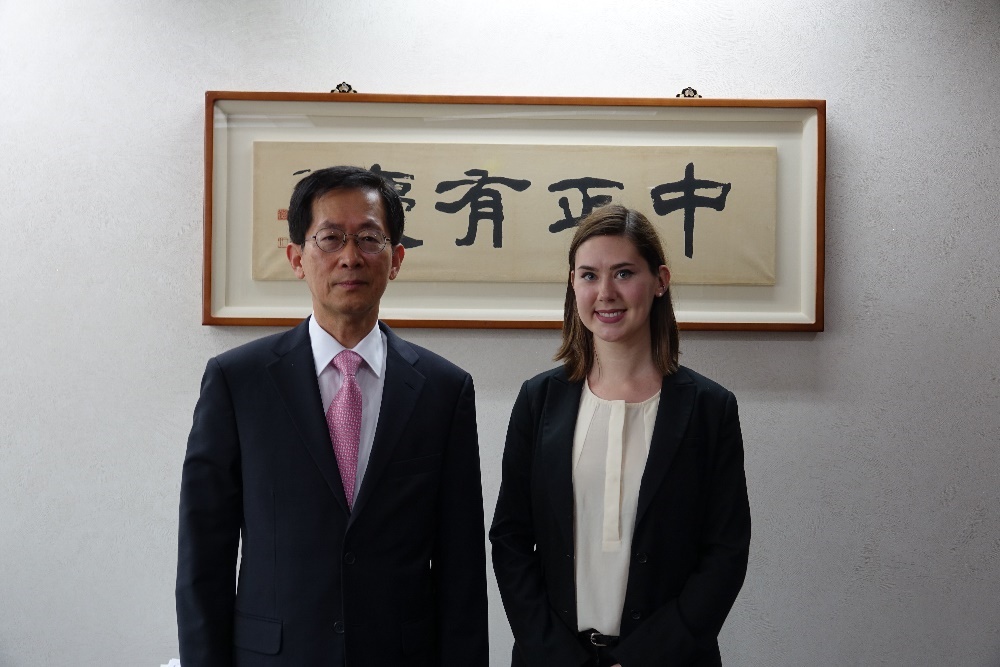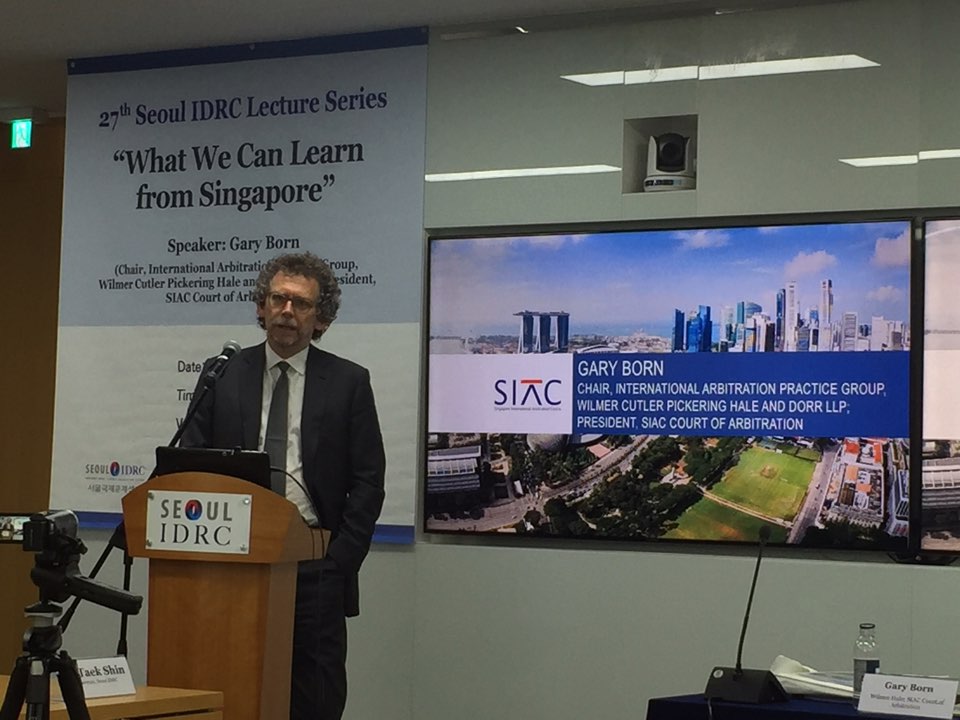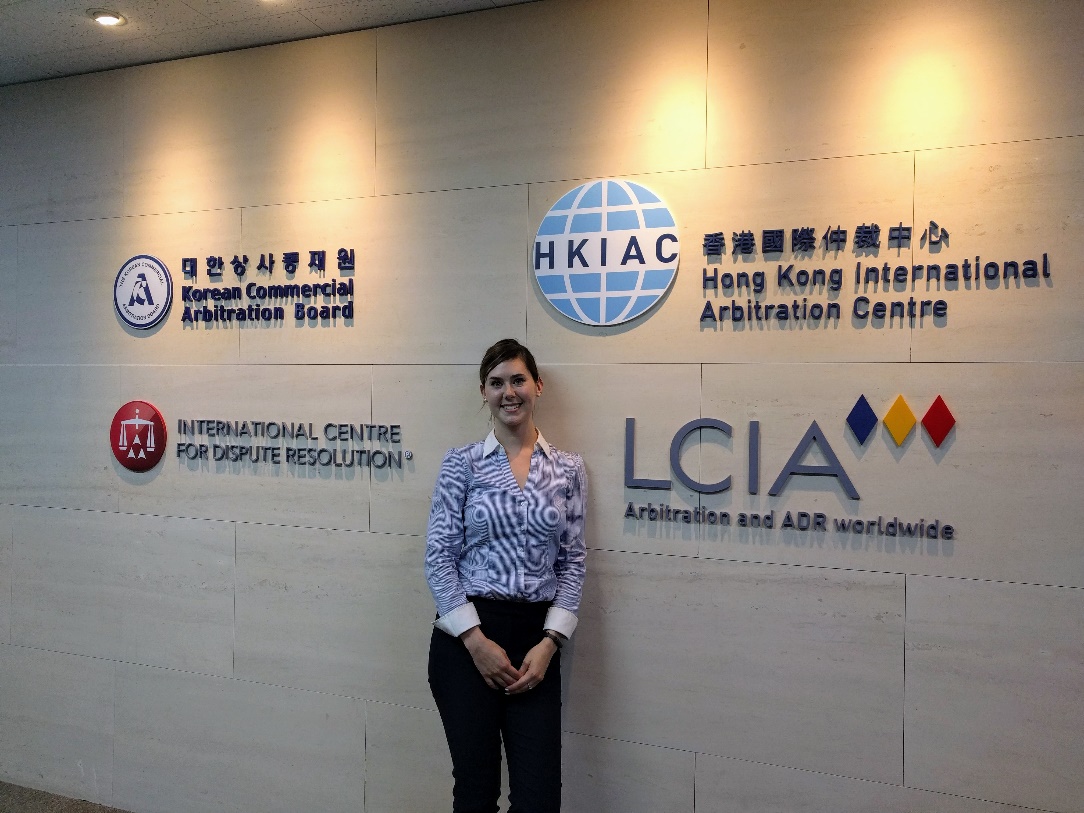By: Nicole Gougeon
The summer of 2017 is one I will never forget. I had the amazing opportunity to travel to and work in Seoul, Republic of Korea for eight weeks thanks to the Dagen-Legomsky International Public Interest Fellowship which I received through the Whitney R. Harris World Law Institute at Washington University School of Law. This experience truly expanded my understanding of international practice.
The Korean Commercial Arbitration Board (“KCAB”) is located in the Seoul World Trade Tower, in the heart of Gangnam-gu – That’s right, they work Gangnam-style. The KCAB is the only authorized arbitral institution in Korea, statutorily empowered by the Korean Arbitration Act. Since 1966 it has expanded alternative dispute resolution options in Korea by offering conciliations, mediations, and arbitrations. I had the pleasure of working with the passionate staff at KCAB to research the legal issues they faced, and better ways for them to provide and promote their services.

Nicole with President Ji Sung Bae.
The internship program at KCAB is currently directed and supervised by Mr. Heehwan Kwon, the director of the International Cooperation Team. The internship program is very dynamic and includes projects influenced by the current caseload and undertakings at the KCAB. From the very beginning I was treated not as an “intern,” but rather as a member of the team, interacting with everyone at the office to accomplish my tasks. Even the President, Ji Sung Bae was willing to take time out of his day to help me. While I worked on many legal research projects, I also got to engage my creative side. I helped design and produce educational materials, and materials to promote dispute resolution through the KCAB. Some of these were for KCAB’s free mediation services. As the KCAB provides free mediation services to any party who applies, they’re an integral resource for the timely and cost-effective settlement of disputes. This liberal public policy is a prime example of the good that can be accomplished when people want to ensure cooperation in their communities. These mediations are the crux of the public service function provided by KCAB, and one of the projects that I helped grow during my internship.

Mr. Gary Born, President of the Singapore International Arbitration Center (“SIAC”) Court of Arbitration and former Counsel for Greenpeace in the Rainbow Warrior Case.
Interning at the KCAB wasn’t “all work and no play” – As co-hosts to education seminars, my position entailed regular trips across Seoul to meet and learn from the big names in dispute resolution. Getting to meet Mr. Gary Born, President of the Singapore International Arbitration Center (“SIAC”) Court of Arbitration, and previously Counsel for Greenpeace in the Rainbow Warrior Case, was like getting to meet a rock-star. His presentation focused on how arbitration practices at SIAC could positively benefit other institutions; one such practice involved the Arbitrator Intelligence Project. After his talk, I was able to meet and discuss with him the benefits to parties of the Arbitrator Intelligence Project, which he happily did. In case you were wondering, Mr. Born fully supports this endeavor and hopes that all institutions will adopt the program in the near future, since it will help parties who may not be able to afford more expensive arbitrators to find someone who is still highly qualified to hear their disputes.
His attitude towards open dialogues aimed at growing and bettering these international institutions reinvigorated my passion to advocate. Advocating not just for the big firms involved in multimillion dollar deals, but for the individual who can’t afford mediation, or the family who’s just trying to get their fair share in a settlement. My time in Seoul helped me to better recognize weaknesses in community lawyering, and just how a strong international dispute resolution network can repair those weaknesses. I worked with highly intelligent, creative, and understanding individuals who are working towards a brighter future, not just for Korea, and not just for parties who can pay, but for everyone.

Dagen-Legomsky International Public Interest Fellow Nicole Gougeon in front of the Seoul International Dispute Resolution Center (IDRC) after the Gary Born Presentation.
